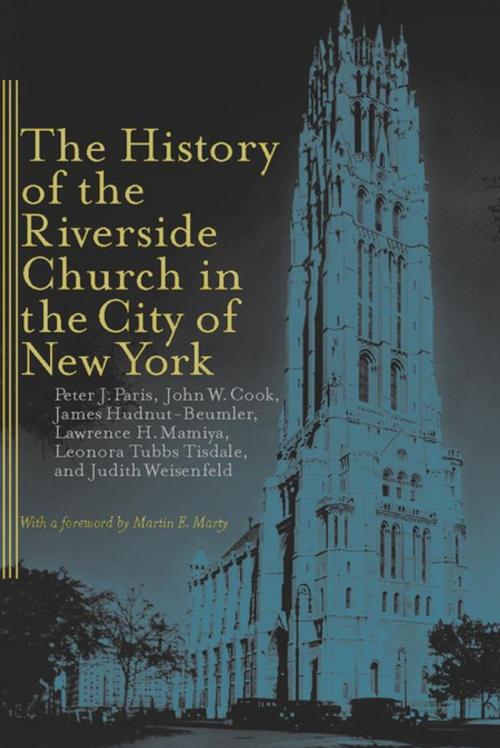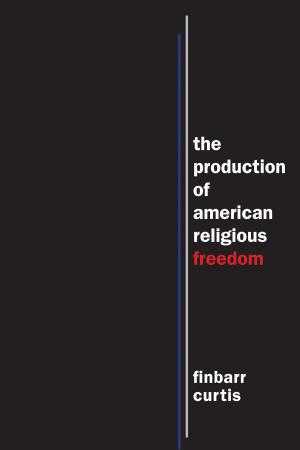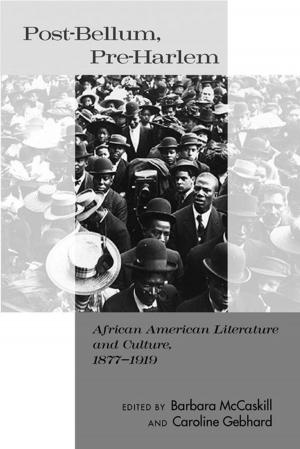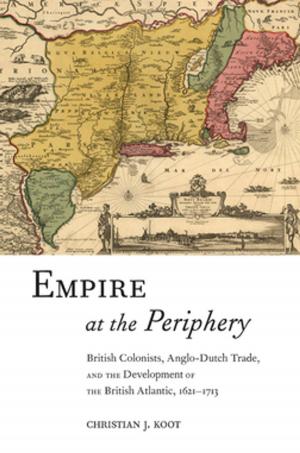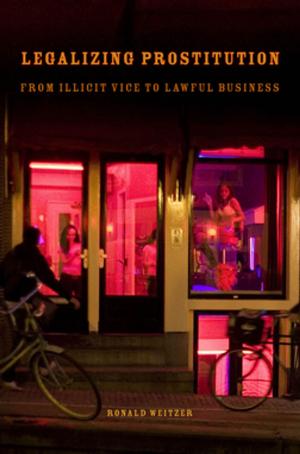The History of the Riverside Church in the City of New York
Nonfiction, History, Americas, United States, State & Local, Religion & Spirituality, Christianity, Church, Church History| Author: | Peter J. Paris, John W. Cook, James Hudnut-Beumler, Lawrence Mamiya | ISBN: | 9780814768365 |
| Publisher: | NYU Press | Publication: | May 1, 2004 |
| Imprint: | NYU Press | Language: | English |
| Author: | Peter J. Paris, John W. Cook, James Hudnut-Beumler, Lawrence Mamiya |
| ISBN: | 9780814768365 |
| Publisher: | NYU Press |
| Publication: | May 1, 2004 |
| Imprint: | NYU Press |
| Language: | English |
It was from the pulpit of the Riverside Church that Martin Luther King, Jr., first publicly voiced his opposition to the Vietnam War, that Nelson Mandela addressed U.S. church leaders after his release from prison, and that speakers as diverse as Cesar Chavez, Jesse Jackson, Desmond Tutu, Fidel Castro, and Reinhold Niebuhr lectured church and nation about issues of the day. The greatest of American preachers have served as senior minister, including Harry Emerson Fosdick, Robert J. McCracken, Ernest T. Campbell, William Sloane Coffin, Jr., and James A. Forbes, Jr., and at one time the New York Times printed reports of each Sunday's sermon in its Monday morning edition.
For seven decades the church has served as the premier model of Protestant liberalism in the United States. Its history represents the movement from white Protestant hegemony to a multiracial and multiethnic church that has been at the vanguard of social justice advocacy, liberation theologies, gay and lesbian ministries, peace studies, ethnic and racial dialogue, and Jewish-Christian relations.
A collaborative effort by a stellar team of scholars, The History of the Riverside Church in the City of New York offers a critical history of this unique institution on Manhattan's Upper West Side, including its cultural impact on New York City and beyond, its outstanding preachers, and its architecture, and assesses the shifting fortunes of religious progressivism in the twentieth century.
It was from the pulpit of the Riverside Church that Martin Luther King, Jr., first publicly voiced his opposition to the Vietnam War, that Nelson Mandela addressed U.S. church leaders after his release from prison, and that speakers as diverse as Cesar Chavez, Jesse Jackson, Desmond Tutu, Fidel Castro, and Reinhold Niebuhr lectured church and nation about issues of the day. The greatest of American preachers have served as senior minister, including Harry Emerson Fosdick, Robert J. McCracken, Ernest T. Campbell, William Sloane Coffin, Jr., and James A. Forbes, Jr., and at one time the New York Times printed reports of each Sunday's sermon in its Monday morning edition.
For seven decades the church has served as the premier model of Protestant liberalism in the United States. Its history represents the movement from white Protestant hegemony to a multiracial and multiethnic church that has been at the vanguard of social justice advocacy, liberation theologies, gay and lesbian ministries, peace studies, ethnic and racial dialogue, and Jewish-Christian relations.
A collaborative effort by a stellar team of scholars, The History of the Riverside Church in the City of New York offers a critical history of this unique institution on Manhattan's Upper West Side, including its cultural impact on New York City and beyond, its outstanding preachers, and its architecture, and assesses the shifting fortunes of religious progressivism in the twentieth century.
